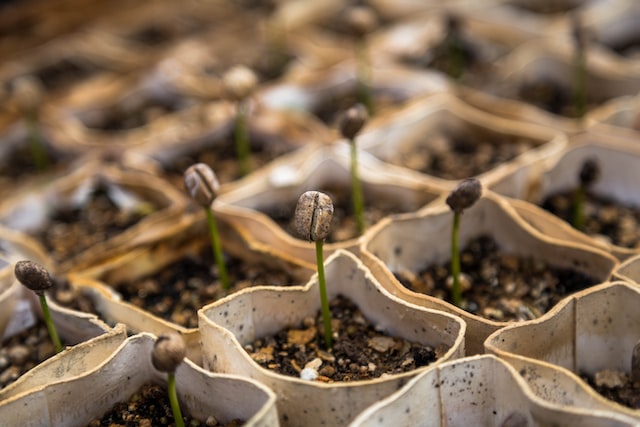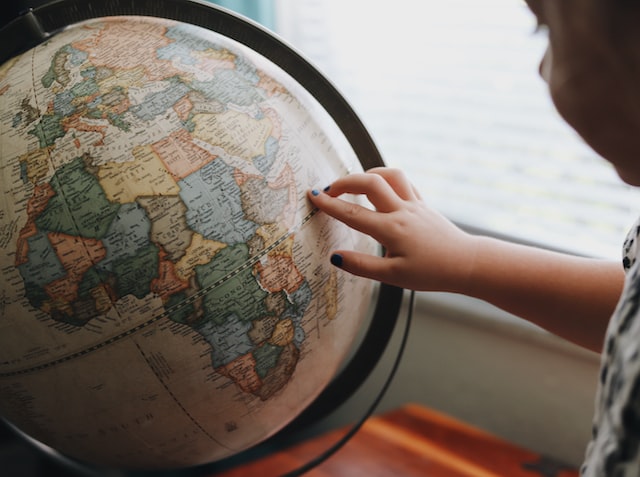“Curiosity is a basic element of our cognition,” write Kidd and Hayden in the first line of their abstract for their paper The Psychology and Neuroscience of Curiosity. Underneath things we now take for granted, was a curiosity about something observed. (I mean, who thought “I should pluck this green bean from this coffee plant, grind it up and soak it in some hot water for a nice start to my morning?”) Ultimately, Kidd and Hayden argue that despite the pervasiveness of curiosity, it’s not well studied nor is there a clear, comprehensive theory that might explain how and why it operates as it does in human life. Given that other research has supported the conclusion that curiosity is meaningful in the development of scientific thinking and important in effective problem solving, this seems like a significant absence in the literature. This absence is especially noteworthy given that curiosity seems to have more than just an instrumental function, with scholars arguing that curiosity is a moral imperative and a key intellectual virtue.

So, if curiosity is developmentally natural and so important, why does it feel so hard? Am I the only one who feels like I have to actively work to cultivate a spirit of curiosity?
One of the reasons that I can glean from the research literature for why curiosity can feel hard is because of its association with uncertainty. Curiosity is (or can be) a response to uncertainty which, on its own, can be difficult to deal with. For example, a research study found that people are least likely to respond with curiosity when they have no idea about something or when they are certain about something. Consider this with the finding that uncertainty about outcomes increases curiosity…and decreases happiness. Perhaps you don’t need a research study to confirm that the feeling of uncertainty can be unpleasant. So, as we might expect, we adopt habits to reduce the unpleasant feelings of uncertainty. What are these habits? Certainty!
The Dunning-Kruger effect is one of my favorites on this topic of overconfidence and certainty (check out this great 5-minute explainer video). The punchline is that if we think we’ve got things all figured out—whether consciously, unconsciously, or by a failure to intentionally examine ourselves—we squelch our chance of exercising curiosity. I want to share why I think this is a really big deal.
Curiosity opens you up.
What do I mean by “opens you up”? I mean that when we exercise our curiosity, we have to adopt a position that says there might be more to this than I can see. Maybe I don’t know everything that’s at play. There may be possibilities that I haven’t thought of yet. In the same way that the shriveled coffee bean is nothing more than a shriveled bean until someone responds to it with curiosity, there are possibilities around us (right now!) that we cannot see because we haven’t bothered to wonder about them.
When we look at the world with curiosity and wonder, there are possibilities—possibilities in the world and possibilities within us. It’s this liminal space, the space between what is and what could be, sparked by a twinge of curiosity, where I have so many times heard God speak. Instead of jumping to conclusions (“that person said that to me because they are a jerk!”), in my moment of curiosity (“I wonder what prompted that response?”) God can call me to more fully image him, responding in love, compassion, grace, and forgiveness. God can also call me to see myself more fully, calling me to responsibility for my role in that situation (“If someone spoke to me the way I spoke to them, I’d probably have said that too.”)
You see, in this, curiosity is risky. By definition, you don’t know. That means you also don’t know what you’ll find. In the example above, sometimes I find compassion for someone else and sometimes I find my own sin. Either way, I have found myself open to the finding when I orient toward the world and the people within it with curiosity.

I have a prayer that I regularly come back to. God, give me eyes to see and ears to hear. (See, as a context, Jeremiah 5:21, Matthew 13:15). When I pray this, what I’m asking is that God will orient me to wonder about the world in a way that reveals something I’ve never bothered to notice. This prayer is for me to attend to injustices I have lived beside for decades but never seen. To hear the suffering underneath the words spoken to me that have gone unnoticed. To look at the world not as I see it, but as Christ sees it. This, at its core, is an exercise in curiosity as it requires me to start with the conclusion that the world may not be as I believe it to be. I want to be open to God’s instruction, through his scripture, the Holy Spirit, and the fellowship of believers. I want to be open to this learning and, consistent with the research, I find that a posture of curiosity makes me open to this.
So what does this mean for you, this semester? I think that depends a great deal on what you are sure you’ve already figured out. So, in this space, I invite you to curiosity. In your classes. In your relationships. In your work. In your play. Ask questions. Allow yourself to wonder—not just about things, but about people. As we open ourselves up to the possibility that our initial ideas may be insufficient, incomplete, or—more profoundly—dead wrong, we open ourselves to awe and wonder about the world and God’s actions within it. You don’t need to rush to the answer; slow down, ask questions, and do the long work of wonder-in-search-of-understanding, the kind of understanding that opens new realms of curiosity, realms previously hidden. When we start with our foundation in Christ, the questions we ask invite him to lead us to new vistas where we can see his world—the world we study—more clearly. As I see it, this understanding, born from curiosity, informs our faithful presence in this world. It’s in that spirit that I come alongside you, sharing that I’m truly excited to see where your curiosity journey takes you.
I’d like to hear from you: How will you cultivate curiosity today?
